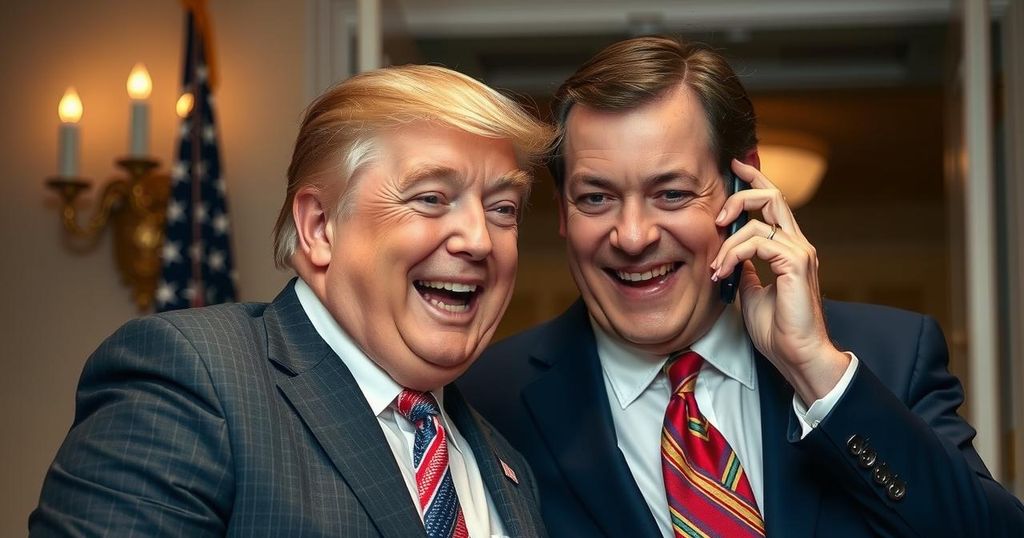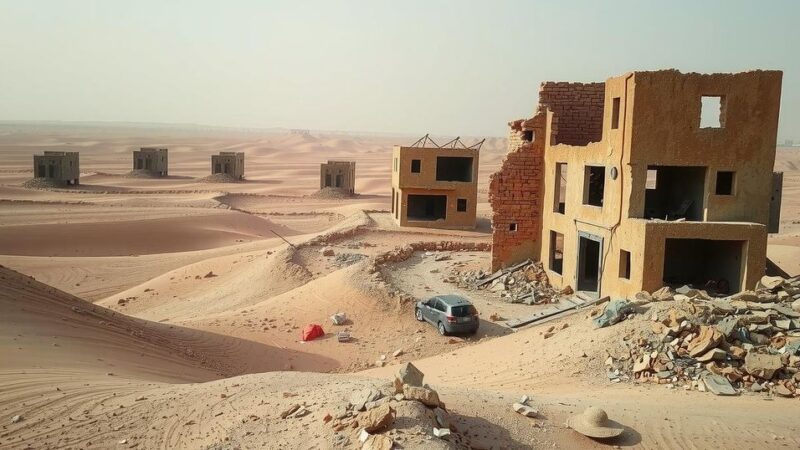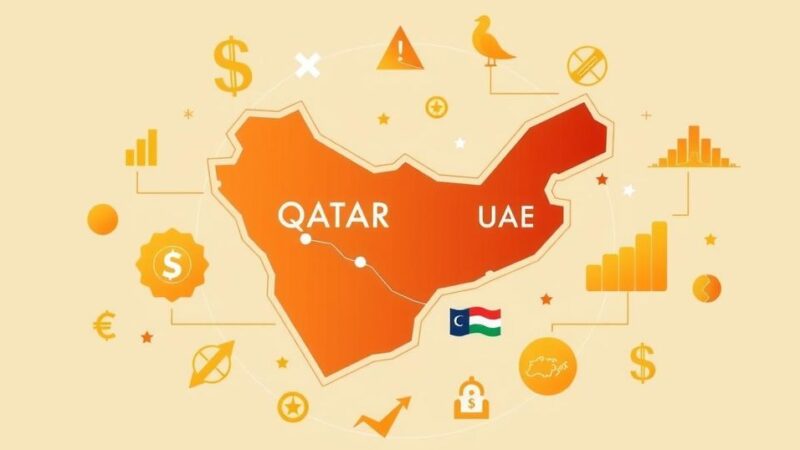General Joseph Aoun was elected the 14th president of Lebanon, ending a two-year political deadlock amid a severe economic crisis stemming from recent conflicts. His election reflects a crucial compromise between political factions and aims to strengthen the military’s role, combat corruption, and foster national unity. The international community has expressed support for Aoun’s leadership, emphasizing the need for reforms to address Lebanon’s pressing challenges.
On Thursday, Lebanon reached a significant milestone with the election of General Joseph Aoun as its 14th president, concluding a protracted power vacuum that persisted for more than two years. His election not only offers a semblance of hope for a nation grappling with severe political impasse and economic distress but also underscores the necessity for unity in overcoming the devastating outcomes of Hezbollah’s conflict with Israel that claimed over 4,000 lives and left many regions devastated.
General Aoun, aged 61, assumed this pivotal role at a crucial juncture when Lebanon faced a multitude of challenges. His ability to leverage a fragile ceasefire, which involved the gradual integration of the Lebanese Army alongside UN peacekeepers in southern Lebanon, marks him as a key figure in the nation’s ongoing efforts toward stability. In the decisive second parliamentary vote, Aoun garnered 99 votes, allowing him to solidify his presidency amid previously failed electoral attempts and extensive political contention.
Aoun’s election signifies a significant compromise among the various political factions in Lebanon, which had struggled to agree for 26 months, resulting in the failure of 12 prior presidential attempts. As the fifth army commander to become president, Aoun succeeds Michel Aoun and is expected to hold the presidency for a six-year term. It is anticipated that his leadership role will foster postwar reconstruction and aim to bolster the effectiveness and unity of the Lebanese Armed Forces, especially in security matters and combatting terrorism.
Throughout his military career, Aoun has earned acclaim for his strategic successes, particularly during operations against militant groups like Daesh and Jabhat Al-Nusra. His neutrality in the political arena has been pivotal in maintaining the Armed Forces’ integrity amidst Lebanon’s sectarian divides. His announcement to combat corruption within the military and seek external aid indicates a commitment to enhancing the army’s operational capacity in the face of economic hardship.
Internationally, General Aoun’s election has been met with enthusiasm, underpinning his support from a diverse array of nations, including Saudi Arabia, the United States, and France. The presence of high-profile diplomats during his parliamentary session highlights the global interest in Lebanon’s political trajectory. US President Biden expressed confidence in Aoun’s leadership capabilities, while French President Macron emphasized the potential for reform and a restoration of sovereignty during a congratulatory phone call.
In facing the monumental task of stabilizing Lebanon, Aoun must navigate the intricate political landscape and strive for a consensus government capable of meeting the country’s pressing economic and social challenges. The collaborative effort among Lebanon’s diverse political factions will be critical to realizing meaningful reform and ensuring the nation rises from the current crisis, which the World Bank has recognized as one of the most severe in its history.
The election of General Joseph Aoun as the president of Lebanon represents a critical juncture for the country, which has been beset by a political deadlock and an economic crisis that has contributed to widespread societal hardship. Following a devastating war with Israel that affected many regions of Lebanon, his presidency emerges as a beacon of hope in restoring order and stability in an atmosphere rife with tension. The political landscape in Lebanon necessitated considerable compromise among diverse factions, reflecting the complexity of the country’s sectarian governance. Aoun’s prior experience as Commander of the Lebanese Armed Forces places him in a favorable position to drive military and state reforms, essential to addressing Lebanon’s socio-economic malaise and fostering recovery post-conflict.
The election of General Joseph Aoun marks a transformative moment for Lebanon’s political landscape, encapsulating a potential pathway toward addressing long-standing issues of governance and economic despair. Aoun’s presidency is defined by a commitment to unity and reform, aligning the military’s role with national priorities, and garnering support from both domestic and international arenas. The collaborative movement toward a consensus government is paramount in resolving Lebanon’s multifaceted challenges, ultimately aiming for stability and recovery amid its complex social fabric.
Original Source: www.arabnews.com






